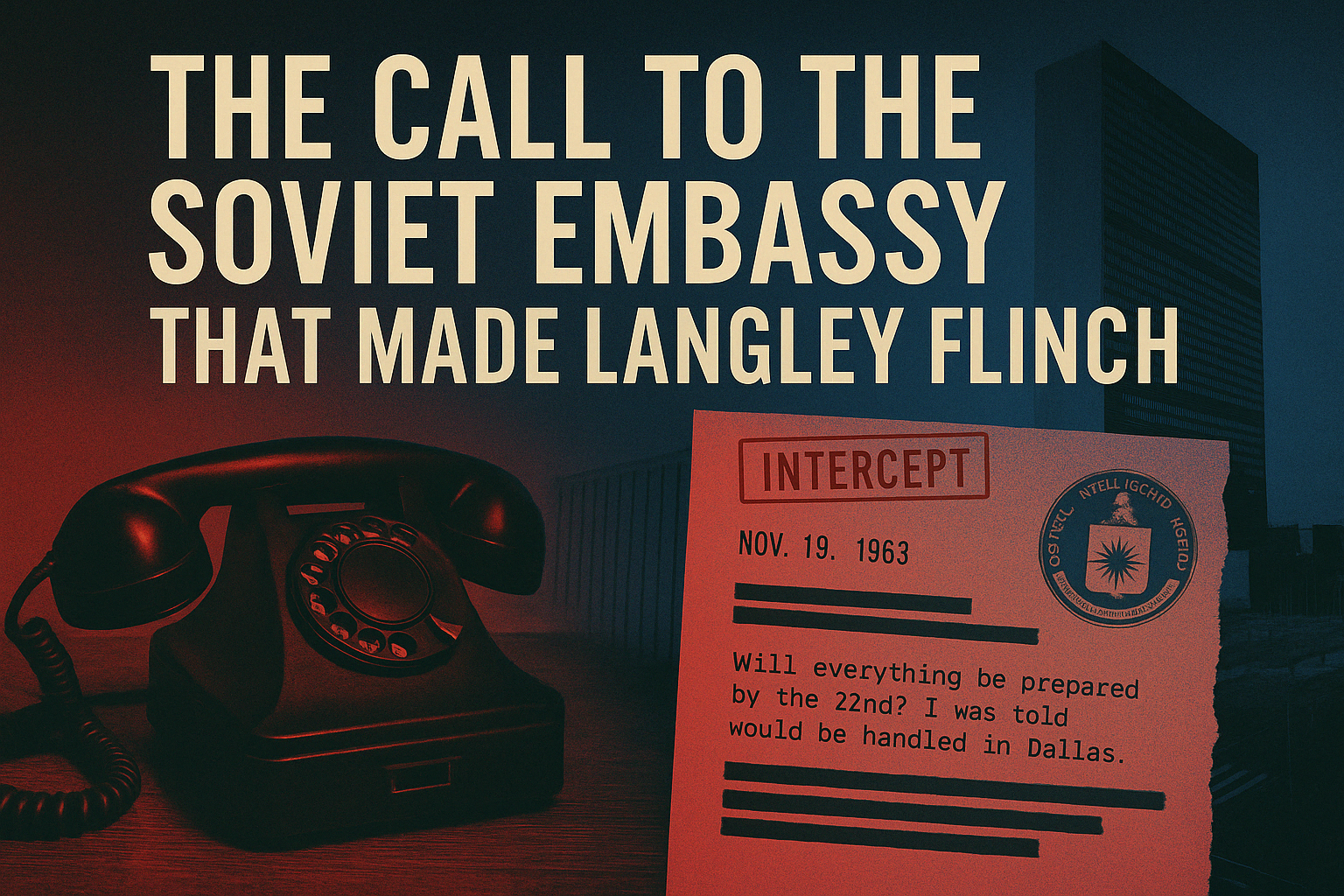In document 206-10001-10014, declassified in March 2025, the CIA confirms it was operating a “passive intercept device” on a direct phone line to the Soviet Mission to the UN in New York City.
What wasn’t expected?
That the call logged on November 19, 1963 - just three days before the assassination - came from someone inside the United States, speaking fluent Russian, asking about “arrangements in Dallas.”
☎️ The Call No One Could Explain
The document is a briefing note from the Office of Security to the CIA Deputy Director of Plans, summarizing a flagged phone intercept from a monitored UN communication circuit.
Here’s the redacted transcription of the key line:
“Will everything be prepared by the 22nd? I was told it would be handled in Dallas.”
The speaker used fluent Russian, but with what linguists described as an East Coast American accent.
The note goes on:
“Caller requested assurance that event would be completed in accordance with earlier arrangements. Used informal vocabulary inconsistent with embassy protocol.”
🛑 Who Was On The Line?
The Soviets never responded to the call.
That fact is what triggered the alarm.
If this was a planned call between collaborators - where was the reply?
A CIA linguistic analyst theorized:
“Caller may have been attempting provocation or signal test.”
That line - “signal test” - appears four times in the memo, suggesting fear that the Soviets were either:
- Running a backchannel warning, or
- Being set up by a third party to take the fall.
🧾 The Mole Hunt That Followed
Two immediate actions were taken after the intercept:
- A request to FBI counterintelligence to check if “any cleared domestic parties had access to Russian-linguist training and Dallas itinerary details.”
- A review of NSA logs for similar phrasing patterns or matching call fingerprints.
Neither search returned a match.
But on November 23, 1963 - the day after JFK was assassinated - a CIA internal routing slip recommended:
“No further inquiry. Treat as anomalous and unconnected unless supporting intercepts surface.”
Just like that - the call disappeared from the investigation trail.
🎯 A Test Call Or A False Flag?
The biggest clue is buried in a footnote in the document:
“Analyst suggests caller may have been testing Soviet awareness or staging a signal to be noticed by U.S. monitoring.”
In short: someone may have known the CIA was listening - and called the Soviet embassy on purpose, with deliberate phrasing about Dallas.
Which raises one unavoidable question:
Who knew enough to say it - and smart enough to make it untraceable?
🧨 They Tapped The Line But Ignored The Message
The CIA caught the call.
They transcribed it.
They flagged it internally.
And then… chose not to follow it.

Leave a Reply